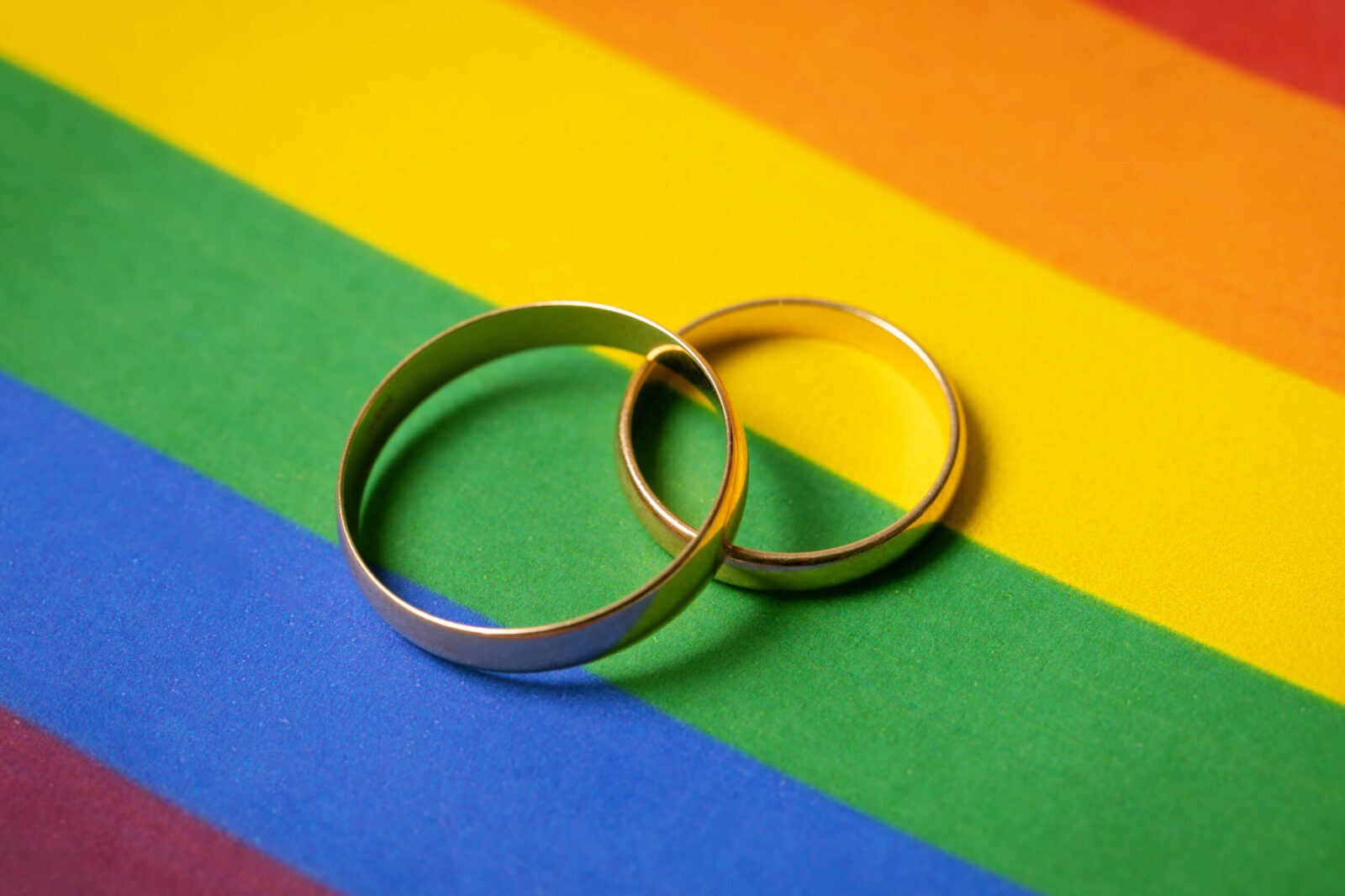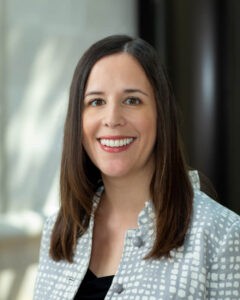March 1, 2023
“Expressing” Inferiority: 303 Creative and the (Re)Creation of a Discriminatory Marketplace
Professor of Law, The University of Texas School of Law

In 303 Creative v. Elenis, the Supreme Court seems poised to give businesses open to the public a constitutional right to discriminate. The objecting business, a web design company, says state law requiring it to offer wedding services on equal terms to gay people compels it to speak in favor of same-sex marriage in violation of the First Amendment. It claims that its argument is limited to “expressive” or artistic businesses—whether website designing, cake baking, or flower arranging.
But 303 Creative—and soon, I fear, the Supreme Court—gets it wrong. Service to customers communicates little, if anything. Because of our social expectations of first-come, first-served, a vendor signals no approval of its customers when it makes a sale. In requiring service on equal terms, the law compels no message. For this reason, the Supreme Court had long concluded that public accommodations law “does not, on its face, target speech or discriminate on the basis of its content.” As court after court held, such laws regulated wedding vendors’ conduct—the sale of a wedding cake or website—not their speech.
What we have missed is that it is refusal of service that powerfully speaks. Refusal tells a would-be patron and the wider public that that person (or group) does not merit status as a consumer. For this reason, 303 Creative’s argument can’t be cabined to artistic or expressive enterprises. It is not the goods that express a message; it is the breaking of uniform conventions of equal service. And so, if the Court sides with 303 Creative, this right to “speak” may equally apply to all public accommodations.
First come, first served: Why Service Does Not Speak
Most spheres of life governed by civil rights laws—employment, housing, or credit—manifest selectivity. Hiring businesses are choosy and job applicants expect rejection and disappointment. By contrast, public-facing businesses—from ballparks to theaters, flower shops to website design studios—welcome all comers. People rarely anticipate or receive rejection, at least without a good reason—the tables are booked or tickets sold out. In Romer v. Evans, the Supreme Court recognized this taken-for-grantedness as central to the consumer market, describing rights of equal access as assumed “by most people either because they already have them or do not need them.”
This lack of choosiness means a public business fails to express any message, let alone a discernable one, through service. Patrons discern no communication from a business pouring a coffee, selling a cake, or cutting a person’s hair. We take for granted that the first person in line will be served, and the wedding vendor will provide its usual goods if available.
Nor does service imply endorsement. When a server brings a meal to a table, they don’t explain “you seem like a nice Christian family.” When a photographer agrees to document a wedding ceremony, they don’t say that they support your wedding, let alone opposite-sex weddings generally. You understand that the price is right and the date is available.
Whether or not the goods are artistic—a tattoo or wedding website—the public perceives no message from the business. Indeed, where “expressive” services are involved, an audience is more—not less—likely to treat any message as that of the patron, not the seller. We think that a tatted back communicates the message of the bearer, not the tattoo artist, and that a website sends the invitation of the marrying couple, not the website designer.
To be sure, service once did communicate. When the social norm was to subjugate minorities, a business that seated people side by side would send a message of support for equality both to the marginalized group and to other consumers. But after the enactment of civil rights law, this same act expressed mere legal compliance. Today, reinforced by these laws, shared norms dictate that public businesses will serve all paying customers. We anticipate being able to purchase goods in all shops, not just some shops. The “general rule”—as the Court said in Masterpiece Cakeshop—is clear: “objections do not allow business owners and other actors in the economy and in society to deny protected persons equal access to goods and services under a neutral and generally applicable public accommodations law.”
Loud and clear: How Denying Service Expresses Inferiority
Refusal of service, by contrast, speaks to both the would-be consumer and a larger audience. Denied flowers for his wedding to Robert Ingersoll, Curt Freed understood the message that “our business is no longer good business.” Rejected by a bed and breakfast on their vacation, another same-sex couple heard that they were “inferior and unworthy of equal treatment in even a routine business transaction.” When a business open to the public turns a person away, it powerfully expresses—as these couples understood—an ideology of a group’s inferiority.
A long history teaches that mistreatment by public accommodations—unlike an average social interaction—sends a message that systematically alters a person’s standing among their fellows. As historian Thomas Sugrue observes, by the twentieth century, “[a]ccess to consumer goods—the right to buy—was a defining characteristic of what it meant to be an American citizen.” When Jim Crow-era businesses served white people before waiting place customers, they sent the message, in the words of one Mississippi man, “let him go first, you come last.”
It was not only black people who received a message about their place in the market and society. Before mid-century, Jewish people regularly confronted “no Jews allowed” and “fine Christian clientele” signs. In the 1960s, proprietors forced gay men to sit alone with their back to other customers to eat a meal. As the Supreme Court observed in Masterpiece Cakeshop v. Colorado Civil Rights Commission, public accommodations discrimination treated gays “as social outcasts or as inferior in dignity and worth.” That same decade, women too were sometimes literally put in their place. At the National Press Club awards dinner, for example, female journalists were seated separately with the wives. Experiences of exclusion and subordination prompted “the realization that society thought—as one woman said—that ‘women don’t belong in the outside world.’” While the experience of these groups differed, public accommodations discrimination designated their proper (and limited) place.
The constant threat of refusal of service by public businesses only increases the clarity of the message: you are less than. As the Supreme Court has noted, public accommodations laws structure “an almost limitless number of transactions and endeavors that constitute ordinary civic life in a free society.” People will find themselves “invited to an establishment, only to find its doors barred to them.”
Of course, the free speech claim in 303 Creative and like cases could be equally framed around provision or denial of service. A wedding vendor could be said to speak through withholding a cake or invitations—sending a message that the would-be patron’s wedding is lesser. And, as I’ve argued, this denial would express a clear message of gay inferiority. But the desire to express such a message would make business owners less-than-sympathetic standard-bearers. So, objectors instead tend to argue that nondiscrimination compels speech in favor of same-sex marriage. On this construction, it is service to the couple—designing a website or a cake—that communicates. With this frame, objectors paint their free speech argument as narrow, applying only to the compelled provision of expressive or artistic services.
But it is denial of goods and services that most powerfully communicates a message. The “expressive” nature of the business does no work. The reality is that a free speech right to refuse to serve a marginalized group cannot be bounded. Defiance of social expectations of equal service to all speaks most clearly.
Conclusion
The line between speech and conduct may not always be clear. Unusual applications of public accommodations law—to parades, genuinely private membership clubs, or staffing of the Boy Scouts—may result in First Amendment protection. As I argued in an amicus brief together with Jim Oleske and Joe Singer, under the Court’s precedent, states may be prevented from applying antidiscrimination law where a regulated party is highly selective, does not engage in standard commercial transactions, and is an endeavor that is customarily associated with expressing a message of its own.
But states have long required nondiscriminatory service by businesses open to the public. Such obligations have co-existed with a wide array of beliefs. Business owners retained their “individual freedom of mind” and the component rights to speak and refrain from speaking. Nor was public accommodation law aimed—as Justice Thomas wrote in his Masterpiece Cakeshop concurrence—“to produce a society free of . . . biases.” Its overarching goal was to secure a consumer market of freely moving people and currency.
What is clear is that a constitutional privilege to discriminate would destabilize longstanding conventions of full and equal access to commerce and leisure. Such a decision would license public accommodations to serve only opposite-sex couples or other in-groups. Exceptions—however the lines are drawn—would undermine an identity-neutral marketplace where dollars and people flow freely without the friction of information and search costs. They quite literally would reduce the space for individual dignity.
*This blog post is an abridged version of Elizabeth Sepper, Free Speech and the “Unique Evils” of Public Accommodations Discrimination, 2020 U. Chi. Legal F. 273 (2020).
__________________

Elizabeth Sepper is a Professor of Law at the University of Texas School of Law.




